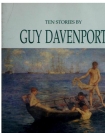The Autobiography of Ma-Ka-Tai-Me-She-Kia-Kiak, or Black Hawk - Black Hawk (howl and other poems TXT) 📗

- Author: Black Hawk
Book online «The Autobiography of Ma-Ka-Tai-Me-She-Kia-Kiak, or Black Hawk - Black Hawk (howl and other poems TXT) 📗». Author Black Hawk
The next morning, the war chief, our guide, convened a council at Fort Armstrong. Keokuk and his party went to the fort; but, in consequence of the war chief not having called for me to accompany him, I concluded that I would wait until I was sent for. Consequently, the interpreter came and said, “they were ready, and had been waiting for me to come to the fort.” I told him I was ready and would accompany him. On our arrival there the council commenced. The war chief said that the object of this council was to deliver me up to Keokuk. He then read a paper, and directed me to follow Keokuk’s advice, and be governed by his counsel in all things! In this speech he said much that was mortifying to my feelings, and I made an indignant reply.
I do not know what object the war chief had in making such a speech; or whether he intended what he said; but I do know that it was uncalled for, and did not become him. I have addressed many war chiefs and listened to their speeches with pleasure, but never had my feelings of pride and honor insulted on any other occasion. But I am sorry I was so hasty in reply to this chief, because I said that which I did not intend.
In this council I met my old friend (Col. Wm. Davenport,) whom I had known about eighteen years. He is a good and brave chief. He always treated me well, and gave me good advice. He made me a speech on this occasion, very different from that of the other chief. It sounded like coming from a brave. He said he had known me a long time, that we had been good friends during that acquaintance, and, although he had fought against my braves, in our late war, he still extended the hand of friendship to me, and hoped that I was now satisfied, from what I had seen in my travels, that it was folly to think of going to war against the whites, and would ever remain at peace. He said he would be glad to see me at all times, and on all occasions would be happy to give me good advice.
If our Great Father were to make such men our agents he would much better subserve the interests of our people, as well as his own, than in any other way. The war chiefs all know our people, and are respected by them. If the war chiefs at the different military posts on the frontier were made agents, they could always prevent difficulties from arising among the Indians and whites; and I have no doubt, had the war chief above alluded to been our agent, we would never have had the difficulties with the whites we have had. Our agents ought always to be braves. I would, therefore, recommend to our Great Father the propriety of breaking up the present Indian establishment, and creating a new one, and make the commanding officers at the different frontier posts the agents of the Government for the different nations of Indians.
I have a good opinion of the American war chiefs generally with whom I am acquainted, and my people, who had an opportunity of seeing and becoming well acquainted with the great war chief (Gen. Winfield Scott), who made the last treaty with them, in conjunction with the great chief of Illinois (Governor Reynolds), all tell me that he is the greatest brave they ever saw, and a good man—one who fulfills his promises. Our braves spoke more highly of him than of any chief that had ever been among us, or made treaties with us. Whatever he says may be depended upon. If he had been our Great Father we never would have been compelled to join the British in the last war with America, and I have thought that as our Great Father is changed every few years, that his children would do well to put this great war chief in his place, for they cannot find a better chief for a Great Father anywhere.
I would be glad if the village criers (editors), in all the villages I passed through, would let their people know my wishes and opinions about this great war chief.
During my travels my opinions were asked for on different subjects, but for want of a good interpreter (our regular interpreter having gone home on a different route), were seldom given. Presuming that they would be equally acceptable now, I have thought it a part of my duty to lay the most important before the public.
The subject of colonizing the negroes was introduced and my opinion asked as to the best method of getting clear of these people. I was not fully prepared at that time to answer, as I knew but little about their situation. I have since made many inquiries on the subject, and find that a number of States admit no slaves, whilst the balance hold these negroes as slaves, and are anxious, but do not know how to get clear of them. I will now give my plan, which, when understood, I hope will be adopted.
Let the free States remove all the male negroes within their limits to the slave States; then let our Great Father buy all the female negroes in the slave States between the ages of twelve and twenty, and sell them to the people of the free States, for a term of years, say those under fifteen until they are twenty-one, and those of and over fifteen, for five years, and continue to buy all the females in the





Comments (0)